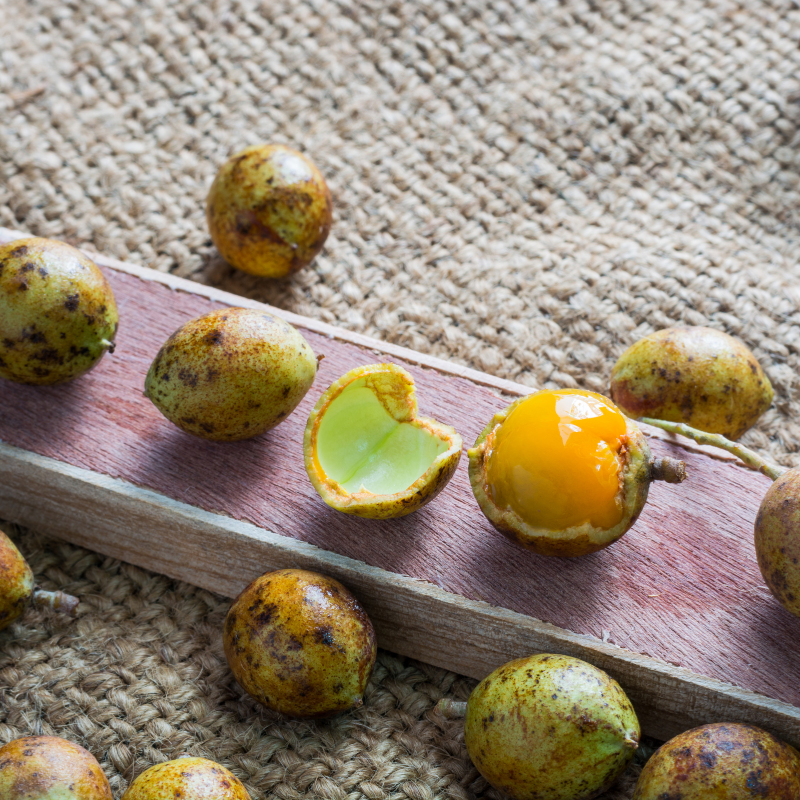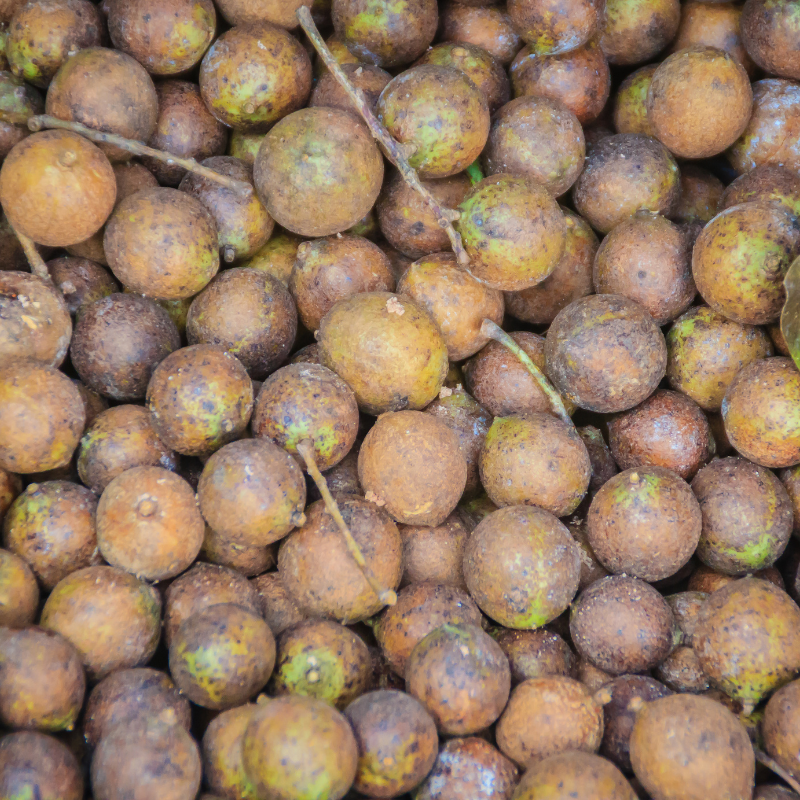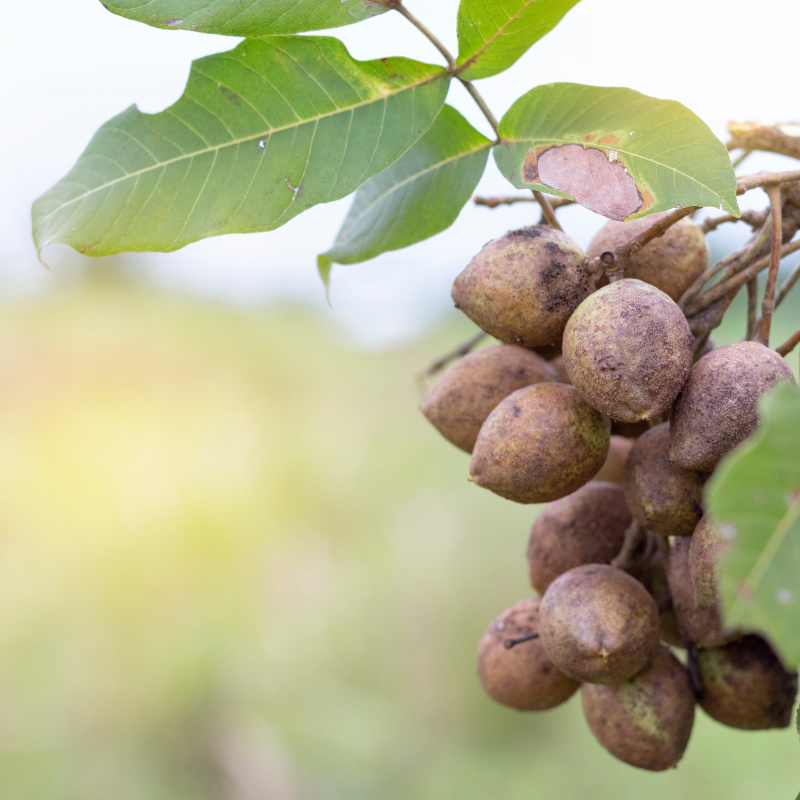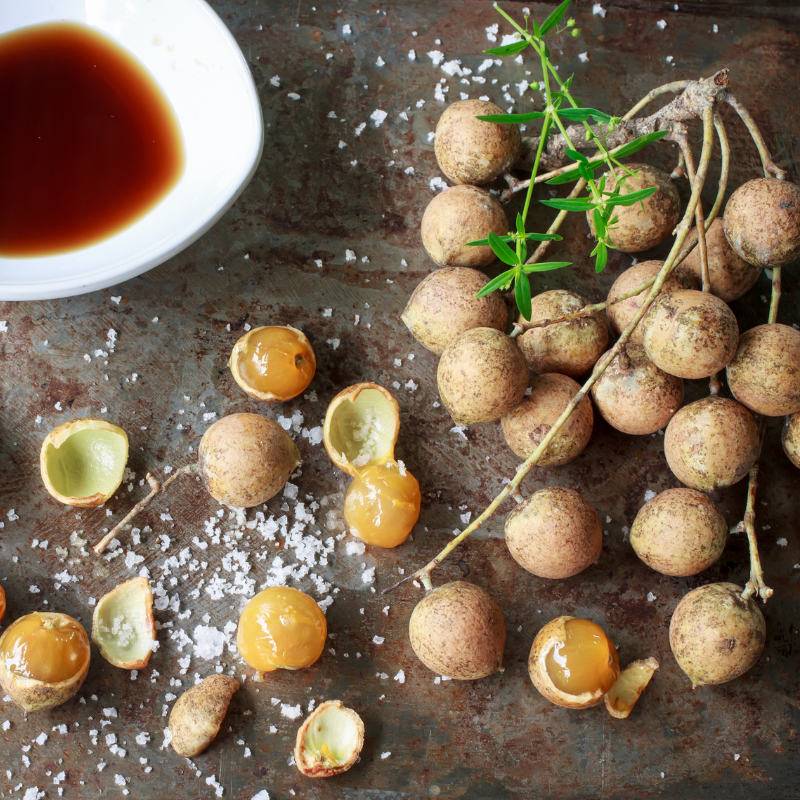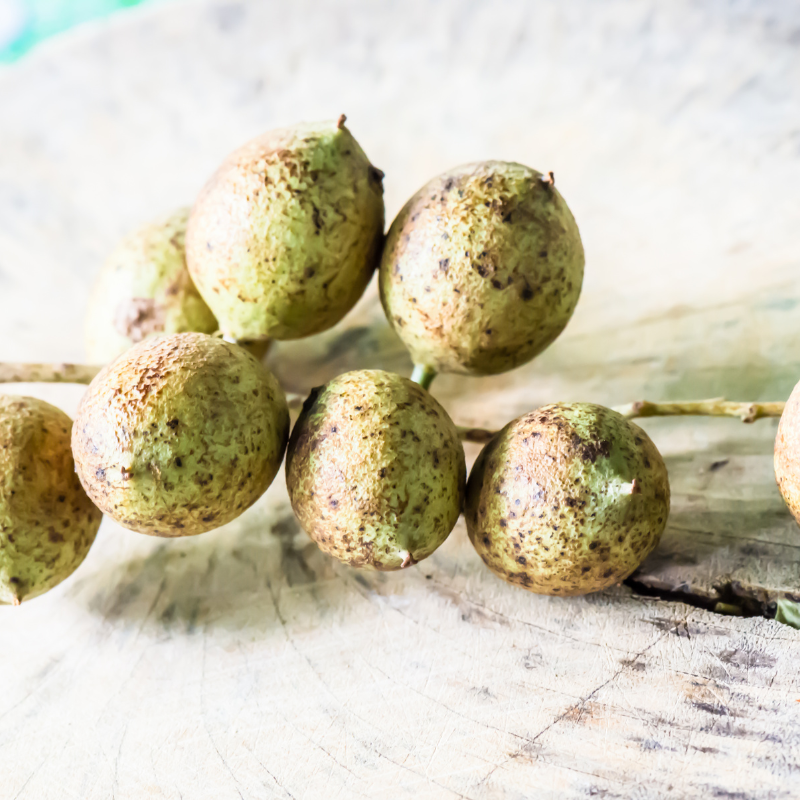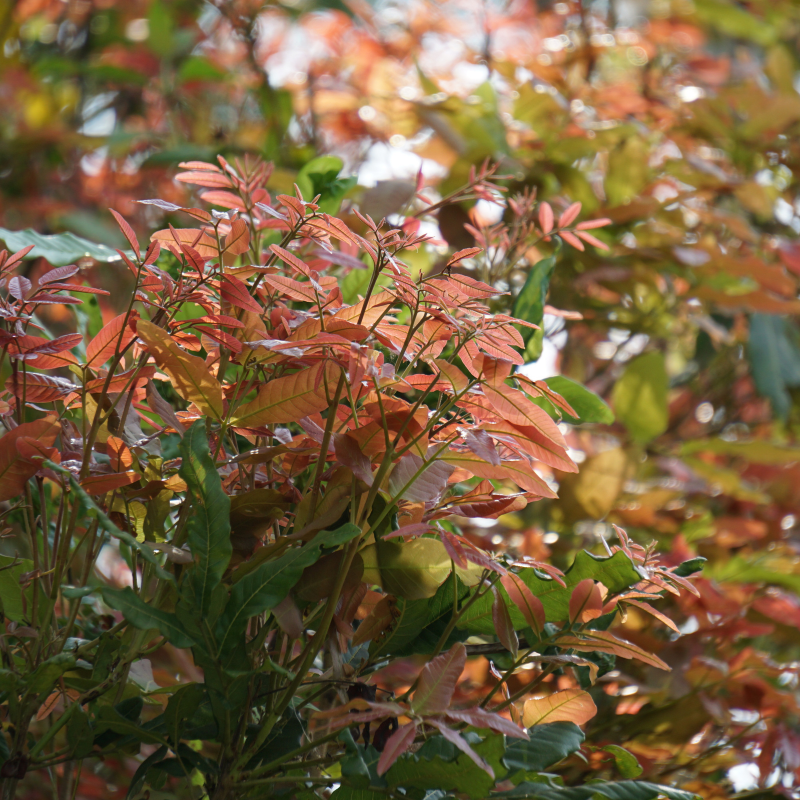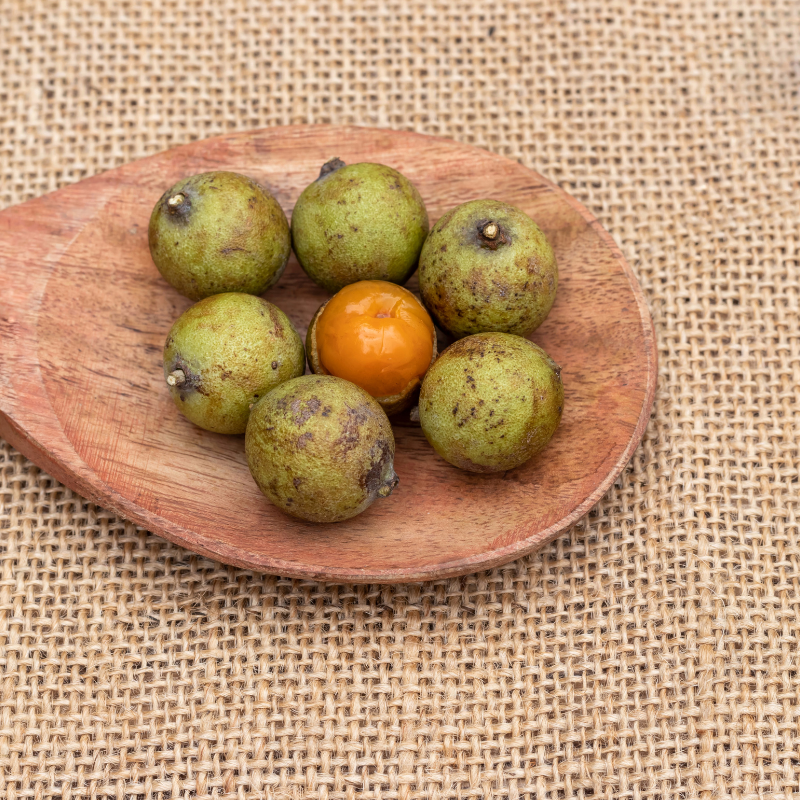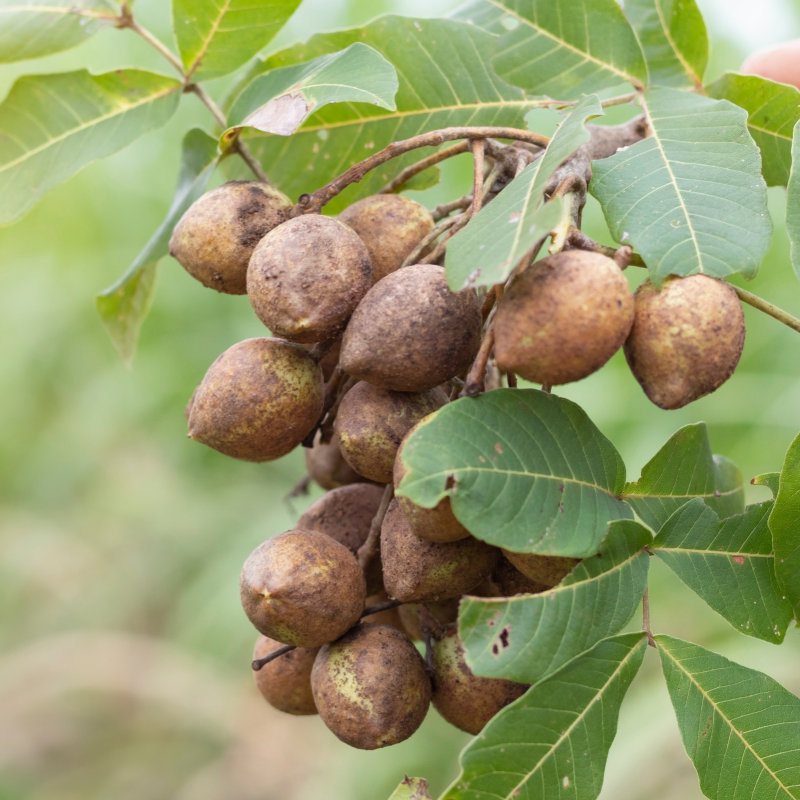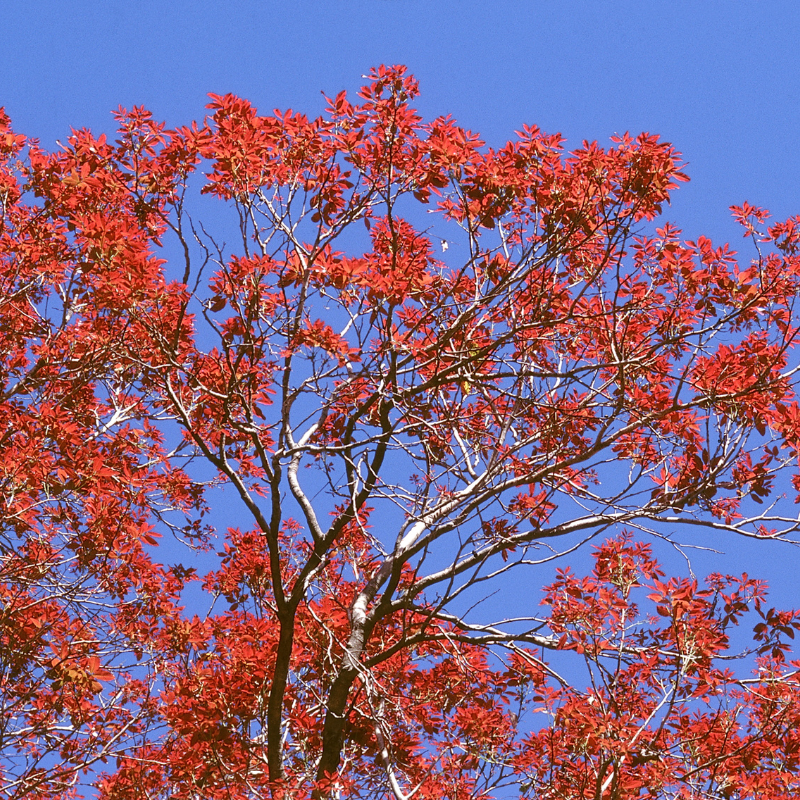Kusum Tree (Schleichera oleosa, Ceylon Oak) Seeds
Schleichera oleosa, commonly known as the Kusum Tree or Ceylon Oak, is a large, deciduous tree from the Sapindaceae family. Native to the Indian subcontinent and Southeast Asia, this tree is highly valued for its oil-rich seeds, medicinal properties, and ecological contributions. It is often planted for shade, timber, and as a host plant for lac cultivation.
Characteristics:
• Plant Description: The Kusum tree grows up to 30–35 meters in height, with a straight trunk and a broad, spreading canopy. It has compound leaves with reddish young foliage that turns green with maturity. The tree produces small, greenish-white flowers that develop into oval, woody fruits containing oil-rich seeds.
• Timber: The wood is durable and used for construction, furniture, and agricultural tools.
• Climate Adaptability: Thrives in tropical and subtropical climates, tolerating a variety of soil types, including sandy and clay soils.
Uses and Benefits:
• Oil Production: The seeds are rich in Kusum oil, used in traditional medicine, soap making, and as a lamp oil. The oil is also known for its use in hair care products.
• Lac Cultivation: The tree serves as a primary host for lac insects, which produce lac resin used in varnishes, polishes, and dyes.
• Medicinal Properties: Parts of the tree, including its bark, leaves, and seeds, are used in traditional medicine to treat ailments such as skin diseases, ulcers, and digestive issues.
• Timber: The hardwood is valued for its strength and durability, making it suitable for construction and crafting.
• Ecological Role: Provides food and habitat for birds, insects, and other wildlife. Its dense canopy offers shade and reduces soil erosion.
• Shade Tree: Often planted in gardens, parks, and along roadsides for its broad, cooling canopy.
Cultivation:
• Sowing: Soak seeds in water for 12–24 hours before planting to enhance germination. Sow seeds directly into the soil or nursery beds, covering them lightly. Germination typically occurs within 2–3 weeks.
• Growth Conditions: Prefers full sun and grows well in well-drained, fertile soils. While drought-tolerant once established, it benefits from regular watering during the early stages.
• Maintenance: A low-maintenance tree that requires occasional pruning to remove dead or damaged branches.
Unique Features:
• Multipurpose Tree: Combines uses for oil production, timber, lac cultivation, and ecological restoration.
• Resilience: Tolerates poor soils, drought, and varied climatic conditions, making it suitable for challenging environments.
• Cultural and Economic Importance: Plays a significant role in rural livelihoods through lac production and traditional medicine.
Shipping:
Available for shipping within India and worldwide. Orders are typically dispatched within 1–2 weeks.
From Deodar Seeds Company.
Schleichera oleosa, commonly known as the Kusum Tree or Ceylon Oak, is a large, deciduous tree from the Sapindaceae family. Native to the Indian subcontinent and Southeast Asia, this tree is highly valued for its oil-rich seeds, medicinal properties, and ecological contributions. It is often planted for shade, timber, and as a host plant for lac cultivation.
Characteristics:
• Plant Description: The Kusum tree grows up to 30–35 meters in height, with a straight trunk and a broad, spreading canopy. It has compound leaves with reddish young foliage that turns green with maturity. The tree produces small, greenish-white flowers that develop into oval, woody fruits containing oil-rich seeds.
• Timber: The wood is durable and used for construction, furniture, and agricultural tools.
• Climate Adaptability: Thrives in tropical and subtropical climates, tolerating a variety of soil types, including sandy and clay soils.
Uses and Benefits:
• Oil Production: The seeds are rich in Kusum oil, used in traditional medicine, soap making, and as a lamp oil. The oil is also known for its use in hair care products.
• Lac Cultivation: The tree serves as a primary host for lac insects, which produce lac resin used in varnishes, polishes, and dyes.
• Medicinal Properties: Parts of the tree, including its bark, leaves, and seeds, are used in traditional medicine to treat ailments such as skin diseases, ulcers, and digestive issues.
• Timber: The hardwood is valued for its strength and durability, making it suitable for construction and crafting.
• Ecological Role: Provides food and habitat for birds, insects, and other wildlife. Its dense canopy offers shade and reduces soil erosion.
• Shade Tree: Often planted in gardens, parks, and along roadsides for its broad, cooling canopy.
Cultivation:
• Sowing: Soak seeds in water for 12–24 hours before planting to enhance germination. Sow seeds directly into the soil or nursery beds, covering them lightly. Germination typically occurs within 2–3 weeks.
• Growth Conditions: Prefers full sun and grows well in well-drained, fertile soils. While drought-tolerant once established, it benefits from regular watering during the early stages.
• Maintenance: A low-maintenance tree that requires occasional pruning to remove dead or damaged branches.
Unique Features:
• Multipurpose Tree: Combines uses for oil production, timber, lac cultivation, and ecological restoration.
• Resilience: Tolerates poor soils, drought, and varied climatic conditions, making it suitable for challenging environments.
• Cultural and Economic Importance: Plays a significant role in rural livelihoods through lac production and traditional medicine.
Shipping:
Available for shipping within India and worldwide. Orders are typically dispatched within 1–2 weeks.
From Deodar Seeds Company.
Kusum Tree, Ceylon Oak seeds - 5
- Brand: Deodar Seeds
- Product Code: DEC24
- Availability: In Stock
₹351.00

